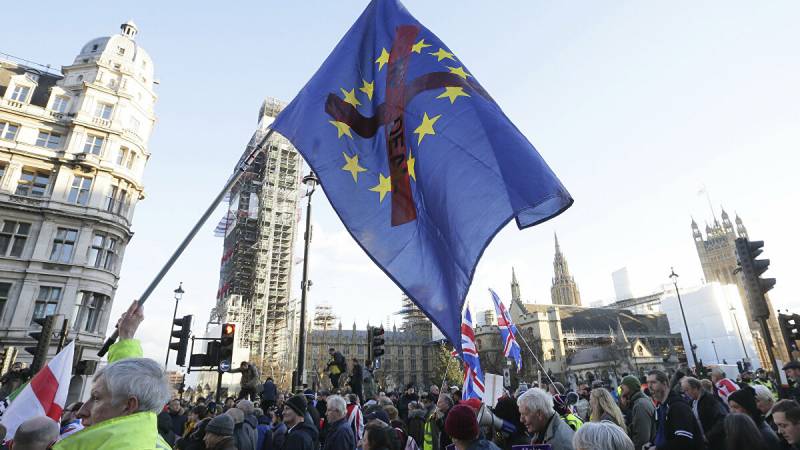As the start of highly-anticipated talks between the UK and Europe looms, the sides are putting efforts into drawing up clear-cut negotiating lines that will better cater to their post-Brexit trade interests now that Britain’s divorce from the EU has entered a transition period.
EU negotiators have pointed out that talks on post-Brexit ties with Britain will kick off next Monday, warning with that the process will be “very hard” and could fall through should London fail to meet its earlier agreed upon commitments over the Irish border.
“If there isn’t progress on the infrastructure needed... in the next few months, that’s going to be a very worrying signal for whether or not it’s going to be possible to conclude something sensible before the end of the year", Irish Foreign Minister Simon Coveney told reporters in Brussels on Tuesday.
He insisted that if it doesn’t happen, it will cripple the prospects “of being able to get even a bare-bones trade agreement... by the end of the year".
“The UK’s primary objective in the negotiations is to ensure we restore our economic and political independence on 1 January 2021", Prime Minister Boris Johnson’s spokesman said in a reference to Britain’s so-called post-Brexit transition period that is to span 10 more months.
'No Changes to Great Britain-Northern Ireland Trade'
The Johnson team has reiterated a number of times Britain’s determination to comply with the terms stipulated by the divorce bill, to lay better ground for upcoming trade talks. “We will comply with our obligations", a Johnson spokesman said on Monday. “Beyond the limited changes... there will be no changes to Great Britain-Northern Ireland trade and we have not asked any ports to prepare for new checks or controls between Great Britain-Northern Ireland".
Britain will also offer no checks to Ireland, as long as goods travel to the country, not beyond it further to the EU. Both Coveney and EU Brexit negotiator Michel Barnier stressed the EU would see border controls between Britain and Ireland as undermining trust between the sides, which they referred to as crucial for new rounds of productive negotiations.
“The UK cannot have quality access to the (EU) single market if it is not prepared to accept guarantees that competition remains open, free, and fair", Barnier said.
Trade Talks: Options on the Table
On Tuesday, the EU’s 27 remaining countries approved a joint negotiating mandate, while the British side noted separately it would publish its own negotiating lines for the EU talks in the coming days.
The first round of talks is scheduled to be held in Brussels starting next Monday and is set to last until Thursday, closely followed by a second round in London.
The EU is currently suggesting that the parties engage in free trade without tariffs or quotas in exchange for the UK committing to follow certain rules for European companies operating there - namely not to subject them to lower environmental and tax standards. Johnson, however, has stressed Britain is not willing to dance to the bloc’s tune for the sake of safe trade options, bringing up the examples of tariff and quota regulations with Japan or Canada. If a Canada-style agreement is off the table, London says it is otherwise ready to agree to basic, less beneficial World Trade Organisation regulations.
Nevertheless, as Barnier put it, a Canada-style arrangement is hardly possible, as Britain neighbours the EU and its potential impact on the single market is much greater.
“The time pressure is immense, the interests are huge, it’s a very complicated treaty, so it will be very hard work", Dutch Foreign Minister Stef Blok commented on the upcoming talks.
Individual EU nations are reportedly struggling to agree on the terms on their own new post-Brexit budget, with France and Germany, in particular, expressing concerns about paying more than their fair share of money to Brussels due to the projected lack of UK contributions after the Brexit transition is finalised.






